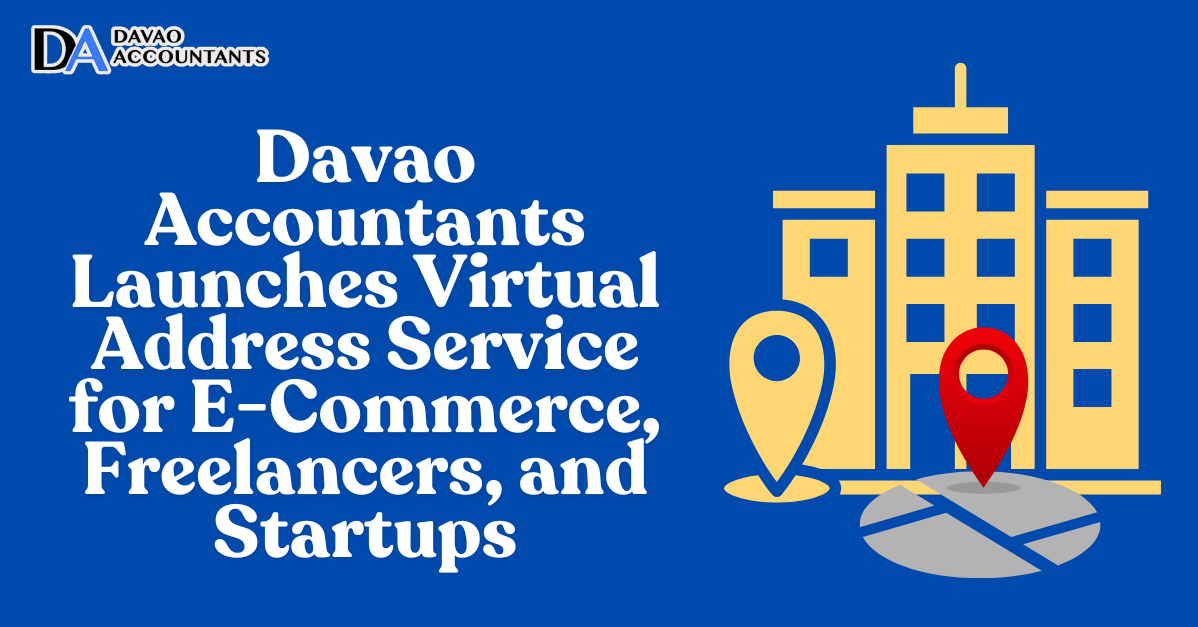Introduction
Bookkeeping is the financial backbone of any business. Yet, for many small business owners in the Philippines, especially those just starting out, it’s often overlooked or mishandled. These errors may seem minor at first — until they lead to cash flow problems, missed tax deadlines, or a stressful audit.
At Davao Accountants, we’ve worked with dozens of local start-ups and SMEs, and we’ve seen the same issues come up again and again. In this article, we break down five of the most common bookkeeping mistakes and show you how to fix or avoid them entirely.
1. Mixing Personal and Business Finances
The Mistake:
Many small business owners use a single bank account or credit card for both personal and business transactions. This might seem harmless early on, but it creates a tangled mess when it’s time to prepare financial reports or file taxes.
Why It’s a Problem:
- It’s difficult to track actual business profitability.
- Makes expense reporting inaccurate.
- Red flags for auditors.
- Can lead to missed deductions or tax overpayment.
How to Fix It:
- Open a dedicated business bank account and use it exclusively for all income and expenses.
- Use a separate mobile wallet or credit card for business spending.
- Regularly reconcile and classify transactions.
- If you’ve already mixed them, work with a bookkeeper to clean up and split out the transactions properly.
2. Not Reconciling Bank and Cash Balances
The Mistake:
Skipping monthly bank reconciliation, or doing it inconsistently, means your books might show cash you don’t actually have (or miss income that was received).
Why It’s a Problem:
- Cash flow decisions are based on incorrect data.
- Fraud or errors can go unnoticed.
- Can result in inaccurate BIR returns.
How to Fix It:
- Reconcile your bank and cash balances at least monthly.
- Match every transaction in your bank statement to your books.
- Investigate discrepancies immediately.
- Use accounting software with bank integration to automate reconciliations where possible.
Tip: If reconciling is too time-consuming, consider hiring a part-time bookkeeper or using our bookkeeping services for small businesses in Davao.
3. Improper Categorization of Income and Expenses
The Mistake:
Many businesses lump all income or expenses into one or two categories (e.g., “sales” or “supplies”) without proper classification.
Why It’s a Problem:
- Inaccurate reports make it hard to track spending patterns.
- Missed deductions — some categories are tax-deductible while others are not.
- Errors in the Chart of Accounts may lead to BIR compliance issues.
How to Fix It:
- Review and organise your Chart of Accounts according to standard Philippine practices.
- Use specific categories for types of income (e.g., service fees, product sales) and expenses (e.g., utilities, transport, professional fees).
- Work with an accountant to ensure your categories align with BIR reporting requirements.
- Update your accounting system to reflect the proper account names and codes.
4. Delayed Recording of Transactions
The Mistake:
Business owners often save receipts or invoices and record them “later” — sometimes weeks or months after the fact.
Why It’s a Problem:
- Leads to forgotten or duplicate entries.
- Tax filings may miss deductible expenses.
- Causes cash flow mismanagement.
- Hurts real-time decision-making.
How to Fix It:
- Set a regular schedule (e.g., every Friday) to update your books.
- Use apps or software to record transactions as they happen.
- Take photos of receipts and upload them to a digital record system.
- Outsource to a virtual bookkeeper to maintain consistent, timely updates.
5. Neglecting to Back Up or Digitise Records
The Mistake:
Relying entirely on physical receipts or manual logs puts your records at risk of loss, damage, or theft.
Why It’s a Problem:
- Fire, flooding or loss can wipe out months of data.
- Manual records are harder to search and audit.
- BIR may require supporting documents for several years.
How to Fix It:
- Scan and digitise receipts, invoices, and documents.
- Use cloud-based storage (e.g., Google Drive, Dropbox) or accounting software with document storage.
- Regularly back up digital files to an external drive or secure cloud platform.
- Keep paper copies organised and stored in a waterproof folder as a backup.
Bonus Tips for Better Bookkeeping
Start simple, then scale: Use spreadsheets or free tools early on, but upgrade as your business grows.
Train your team: If someone else is handling your books, ensure they understand your accounting procedures.
Use checklists: Monthly or quarterly checklists help you track compliance and avoid missing deadlines.
Stay tax-aware: Know your filing obligations — monthly VAT or percentage tax, quarterly ITRs, annual returns — and prepare your books accordingly.
When to Call the Experts
While it’s possible to DIY your books when starting out, the risks of errors increase as your business grows. Some signs it’s time to seek professional help:
- You’re spending more time fixing errors than focusing on your business.
- You’ve missed a BIR filing or received a notice of discrepancy.
- You don’t understand how your financial reports link to taxes.
- You’re preparing for an audit or applying for a loan or investor funding.
At Davao Accountants, we help freelancers, start-ups, and small business owners establish robust financial systems through meticulous, accurate, and tax-compliant bookkeeping. Whether you need help setting up your books, training your staff, or outsourcing the entire process, our team is here to help.
Conclusion
Bookkeeping isn’t just a compliance requirement; it’s a powerful decision-making tool for your business. By avoiding these five common mistakes and implementing more effective systems, you can gain clarity, stay compliant with the BIR, and focus on growing your business.
Need help cleaning up your books or setting up your accounting system?
Visit our Bookkeeping Services page or Contact Us today for a free consultation.











